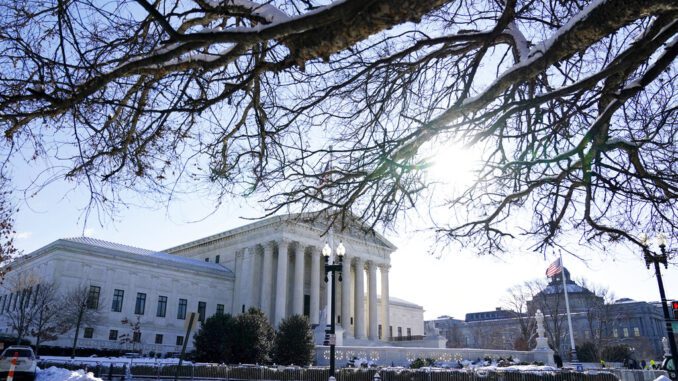
RALEIGH — On Jan. 24, the U.S. Supreme Court announced it will take up a case challenging how universities consider of race in their admissions processes. Arguments will likely be heard later this year with a decision to follow possibly in 2023.
The Supreme Court is consolidating the cases of SFFA v. Harvard University and SFFA v. University of North Carolina Chapel Hill. Depending on the outcome, it could spell an end to affirmative action policies in the college admissions.
The cases were brought by Students for Fair Admissions (SFFA), a Virginia-based group founded by Edward Blum, who serves as the group’s president.
“We are grateful the Supreme Court accepted these important cases for review. It is our hope that the justices will end the use of race as an admissions factor at Harvard, UNC and all colleges and universities,” Blum said in a statement.
Blum also said that “Harvard and the University of North Carolina have racially gerrymandered their freshman classes in order to achieve prescribed racial quotas. Every college applicant should be judged as a unique individual, not as some representative of a racial or ethnic group.”
At the heart of SFFA’s request is the Supreme Court’s previous ruling in Grutter v. Bollinger. The ruling said that the Equal Protection Clause of the Fourteenth Amendment did not prohibit “narrowly tailored use of race in admissions decisions to further a compelling interest in obtaining the education benefits that flow from a diverse student body.”
A past related college admissions affirmative action case is the Supreme Court’s 1978 decision in Regents of the University of California v. Bakke. The high court upheld affirmative action but ruled it unconstitutional for a college’s admissions criteria to use race quotas or race as an exclusive basis for an admissions.
SFFA first sued Harvard in November of 2014, alleging the school was discriminating based on race in violation of Title VI of the Civil Rights Act of 1964. Although a private University, Harvard does receive federal funds and must adhere to Title VI rules.
In the Harvard case, SFFA posited that Harvard was capping Asian student admissions and had placed a “racial penalty” on Asian-American applicants by scoring them lower in certain areas. Alternatively, SFFA alleged Harvard was then giving higher scores and preferential treatment to Blacks and Hispanics due to their race.
The initial SFFA v. Harvard trial lasted about three weeks with a district court ruling in favor of the university and the U.S. Court of Appeals upheld the lower courts ruling. SFFA filed a writ of certiorari with the U.S. Supreme Court in February of 2021.
The same year as the Harvard suit, SFFA also sued UNC Chapel Hill. That lawsuit alleged the university was violating the Constitution’s 14th Amendment guaranteeing equal protection under the law by using race as its main factor in determining admissions.
Judge Loretta C. Biggs of the United States District Court for the Middle District of North Carolina ruled in favor of UNC Chapel Hill on Oct. 18, 2021, allowing the school to continue using race as a factor in its admissions process. SFFA almost immediately appealed.
In a Jan. 24 press statement on the Supreme Court’s decision, UNC Chapel Hill’s Associate Vice Chancellor for Communications Beth Keith said, “We look forward to defending the University’s holistic admissions process before the U.S. Supreme Court.”
“As the trial court held, our process is consistent with long-standing Supreme Court precedent and allows for an evaluation of each student in a deliberate and thoughtful way,” Keith said.
UNC Chapel Hill maintains a website containing a detailed history, press statements and filings in the case which can be accessed by visiting: https://admissionslawsuit.unc.edu/



